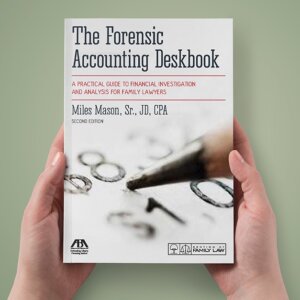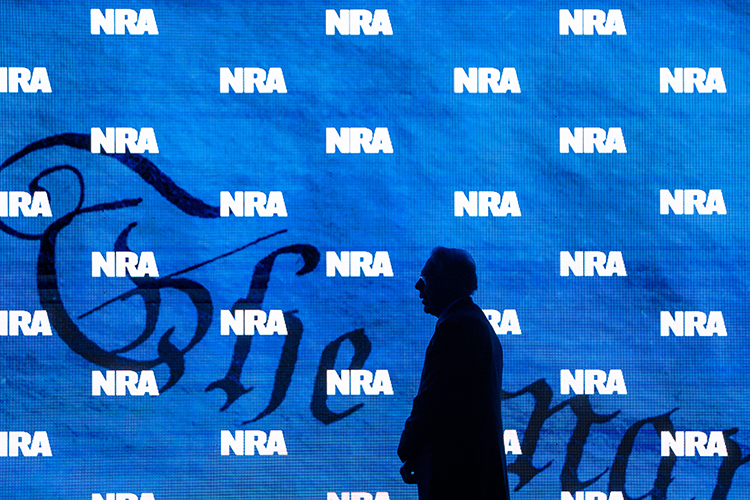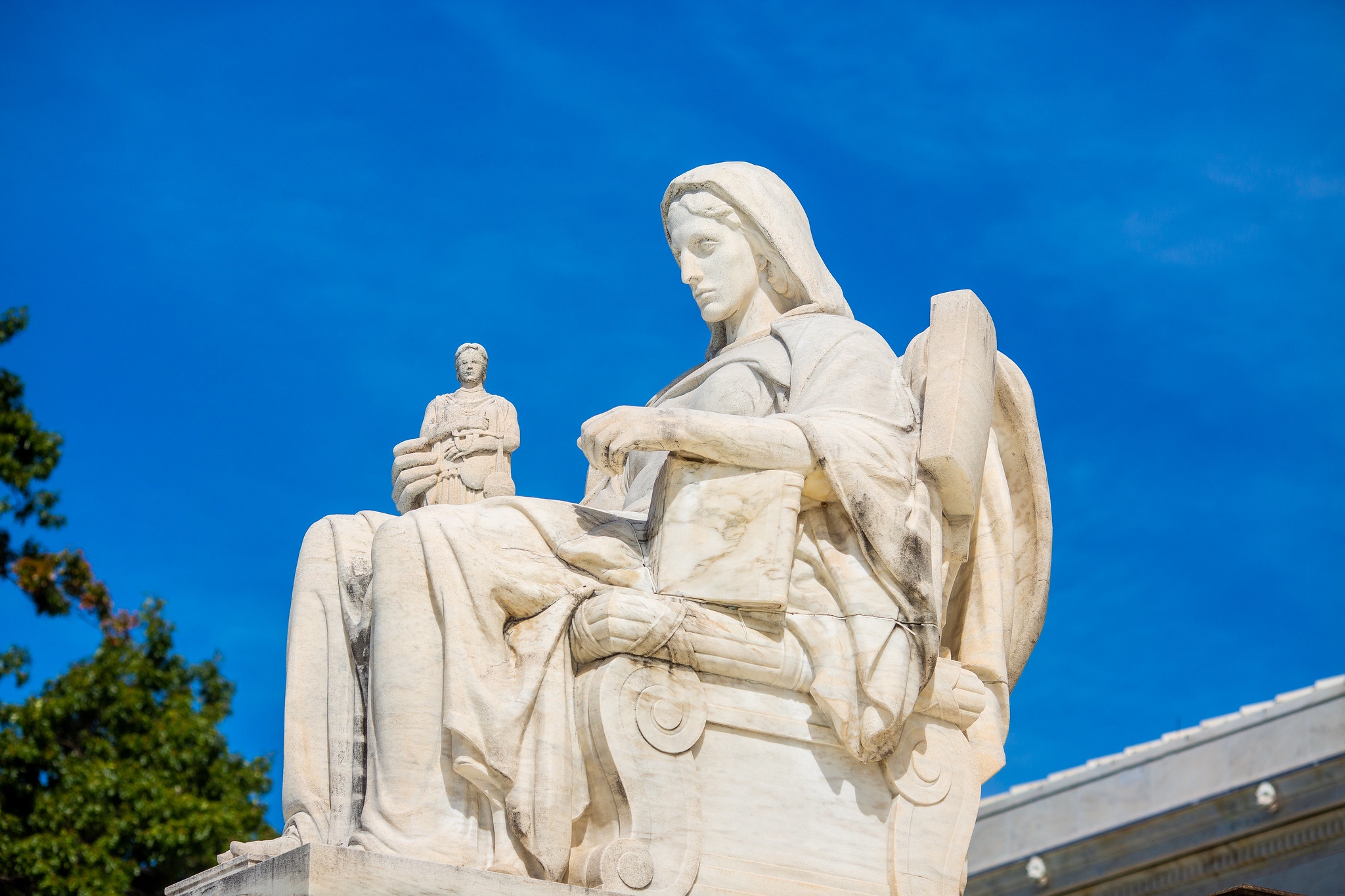University bias-response teams and more Munsingwear vacatur
RELIST WATCH
on Nov 30, 2023
at 7:50 am
The Relist Watch column examines cert petitions that the Supreme Court has “relisted” for its upcoming conference. A short explanation of relists is available here.
The Supreme Court is still slowly making inroads on the still-sizable number of lingering relists from the end-of-summer “long conference.” The court finally denied review on Nov. 20 in six-time relist E.I. du Pont de Nemours & Co. v. Abbott, involving a challenge to the use of nonmutual offensive collateral estoppel to hold that issues resolved in bellwether tort trials bind the defendant in later cases. There, a judge held that chemical giant du Pont was bound by legal determinations made in three trials involving the discharge of acid into the Ohio River. Justice Brett Kavanaugh noted (without an opinion) that he would grant the petition. Justice Clarence Thomas wrote an opinion dissenting from the denial of certiorari, arguing that it “seems illogical and unfair” to relax the common-law requirement that collateral estoppel bind litigants in later litigation only when both parties are the same. Remarkably, six petitions still remain from the long conference.
As anticipated, the court agreed last week to take up both of the issues that were newly relisted. The court granted review in Becerra v. San Carlos Apache Tribe and Becerra v. Northern Arapaho Tribe and consolidated them for argument. Both cases involve what contract support costs the Indian Health Service is obligated to pay to Native American tribesthat manage their own health care programs. And the court granted review in Erlinger v. United States, involving whether juries must make the determination whether qualifying predicate offenses “were committed on occasions different from one another” under the Armed Career Criminal Act sentencing enhancement scheme. Because the government now agrees with petitioner Paul Erlinger that judges cannot constitutionally make that finding, the court appointed Nick Harper, former clerk to Justice Amy Coney Barrett, to argue in support of the judgment below.
That brings us to this week. The court will be considering 214 petitions and applications at this week’s conference. Four cases – or maybe three and a half – are new relists.
Bias response and the First Amendment
The highest-profile case is undoubtedly Speech First, Inc. v. Sands, involving whether state university bias-response teams – and specifically, the bias-response team at Virginia Polytechnic Institute and State University, better known as Virginia Tech – objectively chill students’ speech in violation of the First Amendment.
Bias-response teams are made up of school officials who receive reports of incidents reflecting bias, investigate them, and, when they deem warranted, refer them for formal discipline. Virginia Tech instituted a “bias‐related incidents” policy, under which students could report to the university’s bias-response team “bias incidents,” defined as “expressions against a person or group because of the person’s or group’s age, color, disability, gender, gender identity, gender expression, genetic information, national origin, political affiliation, race, religion, sexual orientation, veteran status, or any other basis protected by law.”
The nonprofit group Speech First sued the university in federal court on behalf of several anonymous students, contending that the policy chilled free speech in violation fo the First Amendment. It argued that Virginia Tech’s policy was broad and vague, encompassing “words or actions that contradict the spirit of the [university’s] Principles of Community,” “jokes that are demeaning to a particular group of people,” “assuming characteristics of a minority group for advertising,” and “posting flyers that contain demeaning language or images.” The district court denied Speech First’s motion for a preliminary injunction against the university’s policy.
On appeal, a divided panel of the U.S. Court of Appeals for the 4th Circuit affirmed. The majority agreed with the district court that the Speech First lacked standing – that is, a legal right to sue – because Virginia Tech’s bias-response team has no “authority to discipline or otherwise punish students” and therefore no “objectively reasonable student would self-censor to avoid encountering it.” The majority noted that the U.S. Court of Appeals for the 7th Circuit had likewise concluded that Speech First lacked standing to challenge bias-response programs. While the majority acknowledged that the U.S. Courts of Appeals for the 5th, 6th, and 11th Circuits had concluded that the group did have standing, it said those courts had done so “only after seemingly ignoring the factual findings of the respective district courts.”
Judge J. Harvie Wilkinson dissented, arguing that “pressure and intimidation lurk behind the [university’s] policy,” chilling speech.
Speech First now seeks review, arguing that there is a three-to-two circuit split on whether bias-response programs are sufficiently chilling to give the organization standing. It is supported by 10 amicus briefs filed by more than 20 organizations.
The university argues in opposition that the case is moot, noting that shortly after its 4th Circuit win Virginia Tech discontinued the bias protocol in an action “not prompted by the litigation.” Moreover, the university added, the school’s president signed an affidavit pledging that the university will not re-institute the bias protocol. The university urges the court to vacate the 4th Circuit’s judgment under what is known as Munsingwear vacatur, a remedy that holds that parties should not be bound by decisions they were unable to challenge on appeal because they became moot. Usually, that remedy is sought by a petitioner – the party that lost below – rather than by the party that prevailed. The university also argues that Speech First, whose clients are all anonymous, lacks associational standing because it did not identify a named client who was injured. And the university disputes that there is actually a split among the circuits, saying each of the cases in which standing was found are distinguishable. The justices are evidently taking a close look.
Mootness
If you’re a fan of Munsingwear, you’re in luck, because it is also at the center of our second new relist. There are already two cases before the Supreme Court involving the continuing validity of decisions made moot by the COVID-19 pandemic wind-down. As regular readers know, six-time relists Payne v. Biden and Biden v. Feds for Medical Freedom involve conflicting decisions of the U.S. Courts of Appeals for the 5th Circuit and the D.C. Circuit, addressing whether federal employees seeking to challenge COVID-19 vaccination requirements could proceed in federal court (as the 5th Circuit held) or rather could only proceed through the Merit Systems Protection Board after adverse employment action (as the D.C. Circuit held). Both cases were rendered moot when the Biden administration revoked the vaccination requirement as part of a broader wind-down. But because the Biden administration – a party to the litigation – was responsible for the cases becoming moot, the challengers in those cases contend the cases fall within an exception to Munsingwear vacatur.
The new candidate for Munsingwear vacatur is Kendall v. Doster. In 2021, the Secretary of Defense ordered all military servicemembers to be vaccinated against COVID-19. The 6th Circuit affirmed orders preliminarily enjoining the Air Force from applying the COVID-19 vaccination requirement to plaintiffs who had unsuccessfully sought to invoke religious exemptions to vaccination. Only a few weeks after the 6th Circuit entered judgment, Congress engaged in a rare act of lawmaking, passing legislation directing the Secretary of Defense to rescind the vaccination requirement, which he promptly did. The government now contends that Munsingwear vacatur is warranted because the case became moot through no fault of its own.
The respondents in the case, members of the Air Force, contend that the case is not moot because they face collateral consequences – such as effects on promotions and assignment decisions – for refusing vaccination. They also argue that the secretary voluntarily mooted the case by going beyond simply revoking the vaccination requirement and instead revoking punishments imposed for refusing vaccination, and by seeking rehearing in the 6th Circuit rather than proceeding directly to the Supreme Court. Lastly, they argue that the 6th Circuit’s decision is valuable, and would not present res judicata concerns against the secretary in the future because the entry of preliminary injunction has a lesser res judicata effect than entry of final judgment.
Harrow v. Department of Defense raises the question of what the consequences are if an employee seeking review misses the deadline to file a petition seeking review of an Merit Systems Protection Board decision under 5 U.S.C. § 7703(b)(1)(A), which provides that “[a] petition from a final decision shall be filed within 60 days after the Board issues notice of the final order or decision of the Board.” Stuart Harrow, a Defense Department employee, was furloughed because of budget shortfalls. He challenged that action, an administrative judge rejected his challenge, and the MSPB affirmed. After the 60-day period to file a petition for review before the U.S. Court of Appeals for the Federal Circuit had passed, Harrow sought an extension of time to file his petition. The Federal Circuit rejected the request under circuit precedent holding that the 60-day time limit is jurisdictional.
In the past few years, the Supreme Court has time and again held that procedural requirements for filing (such as time limits) are only jurisdictional if Congress clearly states that they are. Harrow seeks review of the Federal Circuit’s decision denying his extension request on jurisdictional grounds, arguing it is contrary to an unbroken line of recent Supreme Court precedents. The government opposes, mainly relying on older cases to argue that the jurisdictional holding is correct, and it also argues that Harrow’s case is a poor vehicle because he was not eligible for equitable tolling anyway. Even if the justices believe this case to be a poor vehicle, I wouldn’t be shocked to see a separate opinion respecting denial noting that the Federal Circuit’s precedent appears to be out of step with recent decisions, to either spur the Federal Circuit to reconsider or to encourage other disappointed litigants to bring the Supreme Court a better vehicle.
Remember when I said there were three-and-a-half relists? Here’s the half. The court already agreed to review Murthy v. Missouri, involving constitutional challenges to the Biden administration’s efforts to communicate with social media companies about their content moderation policies. The Biden administration argues that it is seeking only to “mitigate the hazards of online misinformation” by flagging content that violates the social media platforms’ policies. But two states and several individuals contend that the government “coerced, threatened, and pressured social-media platforms to censor” them, in violation of the First Amendment. The court last month agreed to take up the case.
The justices appear to have relisted the case to consider an application to intervene recently filed by the “Kennedy Plaintiffs” – presidential candidate Robert F. Kennedy, Jr., the nonprofit Children’s Health Defense, and others who are plaintiffs in the same consolidated district court action alleging that the Biden administration’s contacts with social media companies are depriving them – as consumers of social media – of information. The district court did not act on their case after granting an injunction in favor of the states. The district court also denied the Kennedy Plaintiffs’ motion to intervene for purposes of gaining access to discovery.
The Kennedy Plaintiffs argue they should be allowed to intervene because they could ensure (they say) that a plaintiff has standing even if the states do not. The federal government opposes the motion, arguing it is untimely, because the Kennedy plaintiffs never sought to intervene on appeal and sought to intervene in the Supreme Court only after review was granted. Moreover, the government adds, the Kennedy Plaintiffs have not shown that the states will not adequately protect their interests. The states challenging the Biden administration’s efforts also oppose intervention, arguing (among other things) that consumers of social media who have identical interests are already part of the case. It is very rare for the Supreme Court to relist motions of this sort.
That’s all for now. Until next time, stay safe!
New Relists
Harrow v. Department of Defense, 23-21
Issue: Whether the 60-day deadline in 5 U.S.C. § 7703(b)(1)(A) for a federal employee to petition the U.S. Court of Appeals for the Federal Circuit to review a final decision of the Merit Systems Protection Board is jurisdictional.
(rescheduled before the 11/9 conference; relisted after the Nov. 17 conference)
Kendall v. Doster, 23-154
Issue: Whether, pursuant to United States v. Munsingwear, Inc., this court should vacate the court of appeals’ judgment and remand with instructions to direct the district court to vacate its orders granting preliminary injunctions as moot.
(relisted after the Nov. 17 conference)
Speech First, Inc. v. Sands, 23-156
Issue: Whether university bias-response teams — official entities that solicit, track, and investigate reports of bias; ask to meet with perpetrators; and threaten to refer students for formal discipline — objectively chill students’ speech in violation of the First Amendment.
(relisted after the Nov. 17 conference)
Returning Relists
Tingley v. Ferguson, 22-942
Issues: (1) Whether a law that censors conversations between counselors and clients as “unprofessional conduct” violates the free speech clause of the First Amendment; and (2) whether a law that primarily burdens religious speech is neutral and generally applicable, and if so, whether the court should overrule Employment Division v. Smith.
(relisted after the Sept. 26, Oct. 6, Oct. 13, Oct. 27, Nov. 3, Nov. 9 and Nov. 17 conferences)
Thornell v. Jones, 22-982
Issue: Whether the U.S. Court of Appeals for the 9th Circuit violated this court’s precedents by employing a flawed methodology for assessing prejudice under Strickland v. Washington when it disregarded the district court’s factual and credibility findings and excluded evidence in aggravation and the state’s rebuttal when it reversed the district court and granted habeas relief.
(relisted after the Sept. 26, Oct. 6, Oct. 13, Oct. 27, Nov. 3, Nov. 9 and Nov. 17 conferences)
74 Pinehurst LLC v. New York, 22-1130
Issues: (1) Whether a law that prohibits owners from terminating a tenancy at the end of a fixed lease term, except on grounds outside the owner’s control, constitutes a physical taking; and (2) whether allegations that such a law conscripts private property for use as public housing stock, and thereby substantially reduces its value, state a regulatory takings claim.
(relisted after the Sept. 26, Oct. 6, Oct. 13, Oct. 27, Nov. 3, Nov. 9 and Nov. 17 conferences)
335-7 LLC v. City of New York, NY, 22-1170
Issues: (1) Whether New York’s Rent-Stabilization Laws and accompanying regulations effect a per se physical taking by expropriating petitioners’ right to exclude; (2) whether the laws effect a confiscatory taking by depriving petitioners of a just and reasonable return; and (3) whether the laws effect a regulatory taking as an unconstitutional use restriction of petitioners’ property.
(relisted after the Sept. 26, Oct. 6, Oct. 13, Oct. 27, Nov. 3, Nov. 9 and Nov. 17 conferences)
Glossip v. Oklahoma, 22-6500
Issues: (1) Whether a court may require a defendant to demonstrate by clear and convincing evidence that no reasonable fact finder would have returned a guilty verdict to obtain relief for a violation of Brady v. Maryland; and (2) whether suppressed impeachment evidence of the state’s key witness is per se non-material under Brady because that witness’ credibility had been otherwise impeached at trial.
(rescheduled before the Mar. 17, Mar. 24, Mar. 31, Apr. 14, Apr. 21, Apr. 28, and May 11 conferences; relisted after the Sept. 26, Oct. 6, Oct. 13, Oct. 27, Nov. 3, Nov. 9 and Nov. 17 conferences)
Glossip v. Oklahoma, 22-7466
Issues: (1) Whether the state’s suppression of the key prosecution witness’ admission that he was under the care of a psychiatrist and failure to correct that witness’ false testimony about that care and related diagnosis violate the due process of law under Brady v. Maryland and Napue v. Illinois; (2) whether the entirety of the suppressed evidence must be considered when assessing the materiality of Brady and Napue claims; and (3) whether due process of law requires reversal where a capital conviction is so infected with errors that the state no longer seeks to defend it.
(relisted after the Sept. 26, Oct. 6, Oct. 13, Oct. 27, Nov. 3, Nov. 9 and Nov. 17 conferences)
Payne v. Biden, 22-1225
Issues: (1) Whether the judgment below should be vacated and the case remanded for dismissal as moot under United States v. Munsingwear, Inc; and (2) alternatively, whether the judgment below should be vacated and the case remanded for further consideration in light of Axon Enterprise v. Federal Trade Commission.
(relisted after the Oct. 6, Oct. 13, Oct. 27, Nov. 3, Nov. 9 and Nov. 17 conferences)
Biden v. Feds for Medical Freedom, 23-60
Issue: Whether, pursuant to United States v. Munsingwear, Inc., this court should vacate the court of appeals’ judgment and remand with instructions to direct the district court to vacate its order granting a preliminary injunction as moot.
(rescheduled before the Sept. 26 conference; relisted after the Oct. 6, Oct. 13, Oct. 27, Nov. 3, Nov. 9 and Nov. 17 conferences)






